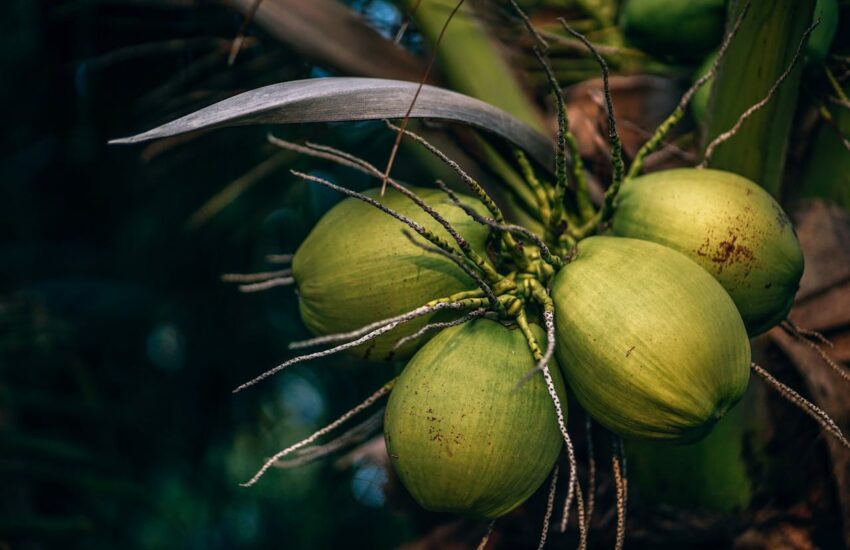Why Mangoes Are a Great Health Booster
Mangoes are an incredible tropical fruit.
If you’ve ever been to the tropics or equatorial regions, you’ve likely seen your fair share of mangoes.
They’re everywhere.
Mangoes are also all over grocery stores in America because they grow abundantly and are easy to ship across the world in an unripened state.
If you’ve been following my writing or the writing of other people in the health space, you know that we all advocate a diet rich in fruit. You’ll also remember that there’s a caveat that says you should attempt to eat fruits that are lower in sugar because even though fruits are healthy if you eat too many fruits that are high in sugar, it’s going to have some adverse effects.
Mangoes are one of those fruits that many people believe to be high in sugar.
And while they’re higher than others, they’re not quite the same as grapes and other fruits like that.
In fact, as you’ll see, mangoes are full of ingredients that can help with weight management, and depending on when you eat a mango in its ripening phase, you can enjoy them without worrying they’re going to be a sugar bomb.
Now, it’s time to learn about how good mangoes can be for you!
4 Amazing Benefits Of Mangoes
Like apples and oranges, there are a ton of different varietals of mango.
Rather than try and explain which is better than the other (hint: they’re all good for you, and some just have a little more of this or a little more of that), I’m going to expand on things that are universally true about mangoes.
Starting with how they can help with weight management.
1 – Mangoes Can Help You Maintain a Healthy Weight:
There are several nutrients in mango that can help a person manage their weight.
The first is fiber.
Mangoes are a great source of dietary fiber, as one cup has 3 to 4 grams of fiber.
This matters because fiber helps to increase the feeling of fullness after eating, which can reduce overall calorie intake by making you feel satisfied for longer periods.
I frequently discuss this. It’s known as “satiety,” and the more satiating a food is, the better it will help you avoid overeating or random snacking.
Then, there’s what mangoes can do for blood sugar.
Some research suggests that the fiber in mangoes can help slow the absorption of sugar in the bloodstream, which, as you probably know from reading my articles, is one of the best ways to help manage your weight.
A study from Oklahoma actually found that supplementing with mango for 12 weeks significantly reduced blood sugar levels in obese adults.
The reason for this is likely owing to the fiber in the mango, which can help stabilize blood sugar levels, keep insulin levels in the normal range, and help with energy management as well as blood sugar control…all of which are upstream from packing on the pounds.
If you want to get the most out of mangoes for this effect, consider eating them right before they get overripe (this is where the skin starts to change from green to the final color and where the fruit begins to become especially soft).
2 – Better than Oranges for Immune Health?
It’s possible that mangoes could beat out oranges for the title of best fruit for immune health.
This has to do with how much vitamin C is available in mangoes. They also have a considerable amount of vitamin A, too.
You hear vitamin C is great for your immune health, but the reasons are probably unclear. Vitamin C stimulates the production of white blood cells, which are your body’s frontline defenders for fighting infections and other immune functions.
As I’ll allude to in the following section, fiber is a food for healthy gut bacteria. These bacteria are responsible for helping maintain a healthy gut and are the source of production for many of the cells we rely on to fight infections.
3 – They Can Help Boost Digestive Health:
Your gut, and how well it processes food, is essential for maximum health.
The fiber I mentioned above is instrumental for your gut and can help you feel better in many ways.
Fiber can help bulk up stool and enhance stool frequency, particularly for individuals experiencing constipation. It also offers protection against various gastrointestinal issues, such as hemorrhoids, GERD (Gastroesophageal Reflux Disease), intestinal ulcers, and diverticulitis.
Prebiotics in mango (another kind of fiber) also give beneficial gut bacteria something to feed on, helping to boost gut health.
A study published in 2023 in the journal Food Science & Nutrition explored the impact of consuming fresh mango on gut health and the microbiome. In this study, 27 participants were given either 100 calories of mango or low-fat cookies daily for 12 weeks in a crossover design, which included a four-week break between the two test periods.
Their observations were that there was an increase in beneficial gut bacteria and a slight uptick in bowel movement frequency. The researchers concluded that regular mango consumption could positively affect gut health and may even offer benefits for chronic diseases that warrant further investigation.
4 – May Help With Heart Health
When it comes to heart-healthy foods, mangoes are at the top of the heap.
The main reason is that they are rich in potassium and magnesium, which are both essential for keeping your heart in good shape.
Your heart relies on both of these minerals to beat on time as well as to regulate blood pressure.
Other nutrients in mangoes, like fiber, pectin, and vitamin C, can help lower cholesterol levels, particularly LDL (bad) cholesterol, which is known to help reduce the risk of heart disease.
Research published in the journal “Nutrient” highlights that the consumption of fiber-rich fruits like mangoes is associated with a lower risk of cardiovascular diseases.
This is a huge boon to people who want to target one of the main killers in the world.
All from a simple fruit.
Notes On Mangoes
The big thing to know about mangoes is that you should try not to eat overripe ones, as they will be higher in sugar. The same goes for dried mangoes. While tasty, it’s easy to overindulge in dried mangoes and get too much sugar too fast.
Also, mangoes are a fruit you don’t necessarily have to purchase organic. They have tough skin that you cut off before consumption, so you don’t have to worry about pesticides and herbicides contaminating your food.
However, I’d still go organic just because it’s going to be better for the environment overall.


